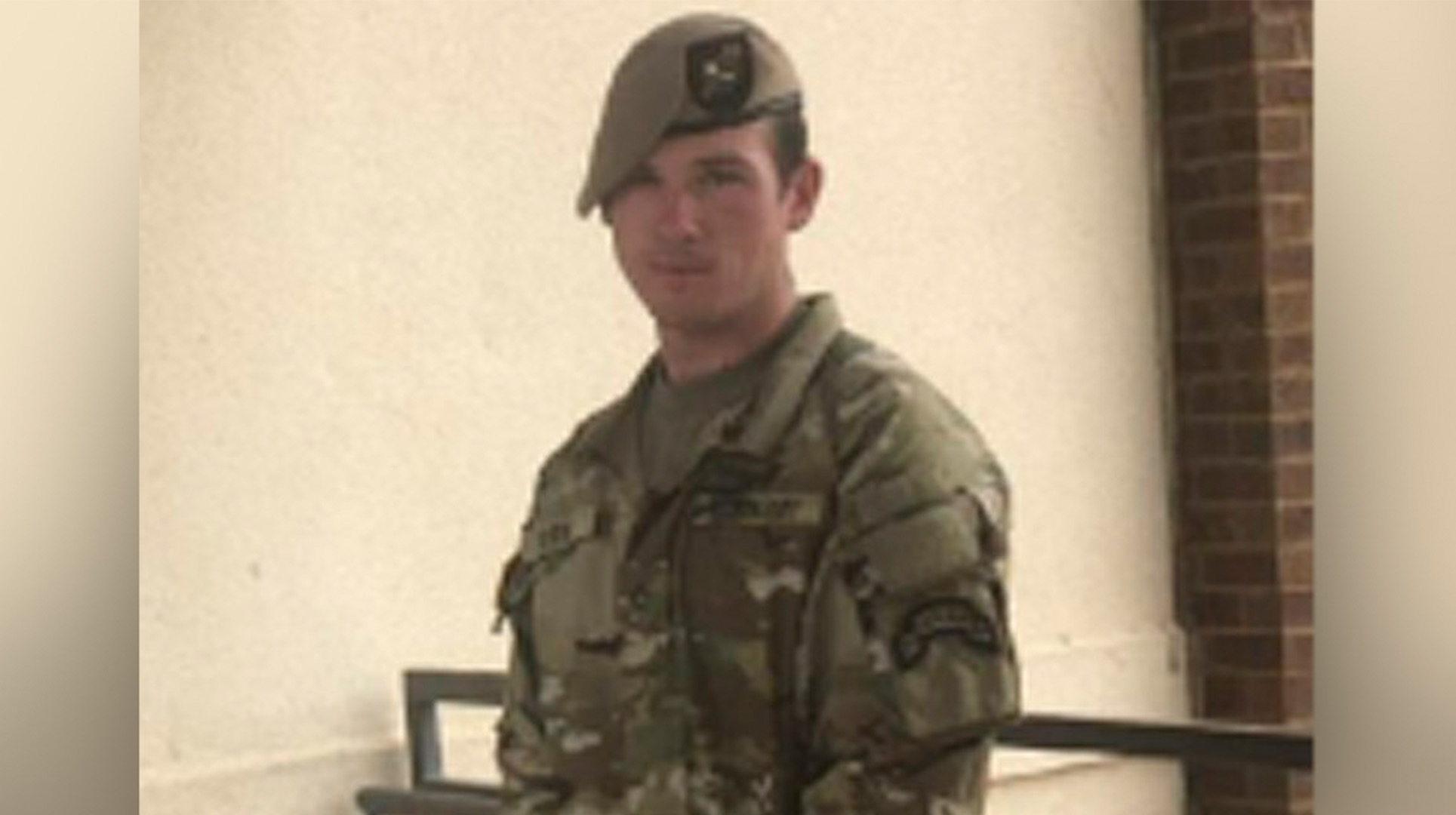

A Ranger has been sentenced to 20 years in prison after pleading guilty to first degree murder for brutally attacking and killing a civilian security guard in July 2021.
Spc. Patrick Byrne pleaded guilty on March 15 to a relentlessly brutal assault on Denise Smith, a Tacoma private security guard, during which he “dragged her around like a rag doll,” stabbed her in the face with keys, and strangled her, according to court records.
Prior to the incident, Byrne had been in a fight while drinking with other Rangers, during which he was punched in the head. As he fled the fight, Byrne appeared to stumble across Smith randomly while she was on duty at a nearby office building.
At the time of the incident, Byrne was assigned to the 2nd Battalion, 75th Ranger Regiment at Joint Base Lewis-McChord and had just returned from a two-month deployment to Afghanistan.
Byrne’s defense attorney had argued that the Ranger suffered a catastrophic brain injury from the blow to the head that caused him to attack Smith.
The Army will soon administratively separate Byrne now that his trial is complete, said Tracy Bailey, a spokeswoman for the 75th Ranger Regiment.
On July 18, 2021, Byrne entered a building in Tacoma, Washington, and assaulted Smith, according to his plea agreement. Video of the attack shows Byrne punching and strangling Smith, who stopped moving after about 11 minutes. He eventually jumped or fell 14 feet to get to the street.
Subscribe to Task & Purpose today. Get the latest military news and culture in your inbox daily.
In addition to murder, Byrne was also initially charged with kidnapping and burglary, but those offenses were later dismissed, according to court records.
Deputy Prosecuting Attorney Thomas Howe wrote in a court filing that there is no question about how Denise Smith died.
“There is, however, a real issue of fact with respect to Mr. Byrne’s mental state at the time of the offense,” Howe wrote. “The two retained defense experts would be expected to opine that Mr. Byrne suffered a head injury in an earlier (also caught on video) altercation with at least one other individual, where he was likely briefly rendered unconscious, and that this injury led to a period where Mr. Byrne was not legally responsible for his actions.”
Prosecutors contended that Byrne’s head injury was caused by his fall from a second story window after the attack, and that he was suffering from “voluntary intoxication” at the time of the assault, Howe wrote.
“The fact that the motive for the killing is not well understood, and perhaps not understandable, is a factor that could make a unanimous decision for a jury difficult,” Howe wrote.
Byrne’s attorney David Katayama declined to comment when contacted by Task & Purpose.
In a defense sentencing memo, Katayama wrote that psychological reports indicate Byrne had a history of suffering serious head wounds before and during his time in the Army.
“Over the course of his military service, Mr. Byrne reportedly suffered additional head injuries, including ‘blast concussion’ and a major fall that resulted in head injury after Mr. Byrne’s parachute failed to deploy during an airplane jump,” Katayama wrote.
On the night of the assault, Byrne went out drinking with other Rangers when an argument broke out, Katayama wrote. One witness recalled seeing a man punch Byrne, who went down “pretty quick, you could tell that he was knocked out,”
Another witness said that Byrne hit his head on the ground, court records show. Several people recalled that Byrne briefly lost consciousness after he was knocked down to the concrete.
“Upon regaining consciousness, Mr. Byrne suddenly popped up and, without explanation, ran along Pacific Avenue and disappeared into downtown Tacoma alone,” Katayama wrote. Witness indicated in the interviews with police, that Mr. Byrne appeared dazed and that the ‘lights were on, but no one was home.’”
Within a few minutes, Byrne entered the office building and assaulted Smith. Two women who found Byrne afterwards said that he made bizarre statements at the time, such as claiming he had been sexually assaulted that night.
Byrne underwent psychological and forensic psychiatric evaluations that indicated he had suffered a traumatic brain injury after being punched that was exacerbated by earlier head injuries, Katayama wrote.
One expert determined, “That blow produced traumatic injury to areas of the brain very likely having a causal relationship to the homicide;” adding, “It was the punch to the head, not the alcohol intoxication, that was the pivotal precipitant for Mr. Byrne’s violent behavior,” Katayama wrote.
As part of his sentence, Byrne is not allowed to have any contact with Smith’s family for the rest of his life, court records show.
Smith’s sister Tina Renee Mack said that although she doesn’t believe Byrne’s 20-year prison sentence is sufficient for the crime he committed, she is comforted by the fact that he will be in custody for the foreseeable future.
“I just have to be thankful for what they gave him,” Mack told Task & Purpose.
Nearly three years after Smith’s death, Mack said it is still difficult for her to talk about her sister.
“Denise was extraordinary,” Mack said. “She was just the sweetest thing ever. She was so kind and so gentle.”
UPDATE: 05/14/2023; this story was updated after publication with comments from Tina Renee Mack.
The latest on Task & Purpose
- Marines want to wear their uniform for high school graduation, but their school said no
- AC-130 gunship crewman killed in shooting with Florida sheriff deputy
- The Space Cowboys: Guardians earn their spurs in cavalry tradition
- Soldier detained in Russia may have been set up by girlfriend, mother says
- Army debuts new recruiting ads aimed at high-tech civilians rather than soldiers
